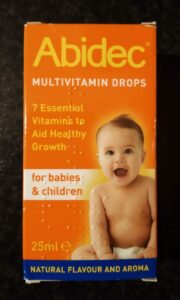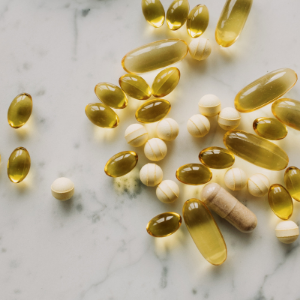The World Health Organization and UNICEF recommend exclusive breastfeeding for the first 6 months of life. Followed by introduction of safe and nutritional complementary foods from 6 months with continued on-demand breastfeeding until 2 years of age or beyond. But why is breast milk good for babies?
Breast milk has the ability to adapt to the needs of the baby as he/she grows. A baby that receives breast milk is getting all the benefits from this liquid gold. Whether he feeds directly from the breast, from a bottle or even enterally (via nasogastric tube or a PEG, for instance), the advantages of breast milk he will get are the following ones.

Why is breast milk good for babies?
Antibodies
Breast milk has antibodies (immunoglobulins) that protect the baby against bacteria and viruses. The main immunoglobulin is IgA. IgA accounts for up to 90% of all immunoglobulins in human milk. It binds to viruses and harmful bacteria and prevent them from penetrating the intestinal mucosa. Subsequently, they inhibit colonization in the baby’s intestine.
Hormones
Some of the hormones present in breast milk are: oxytocin, prolactin, corticosteroids, insulin, thyroxine and thyroid stimulating hormone (TSH).
As the Society for Endocrinology explains, oxytocin has been shown to be essential in human behaviour. For instance, in mother-infant bonding, trust, anxiety control and recognition. For that reason oxytocin is also known as the ‘love hormone’.
On the other hand, prolactin is a really important hormone too. It has a key role in producing breast milk. Studies undeniably demonstrated prolactic has over 300 functions in the body.

Vitamins
Breast milk has vitamins A, C, D and E.
The UK National Health Service states that vitamins A and E boost your natural defences against illness. They help the immune system to fight infections while keeping your skin and eyes healthy.
Vitamin C helps with wound healing and protects the baby’s cells. It maintains bones, blood vessels (veins and arteries) and skin healthy.
Enough vitamin D is needed to regulate how much calcium and phosphate is in the baby’s body. Even though breast milk contains some vitamin D, it is not enough to cover the baby’s needs in such a growing period. For this reason the Department of Health and Social Care in the UK recommends that:
All breastfed babies should be given a daily supplement of vitamin D (8.5 to 10mcg).
Children aged 1 to 4 years old should be given a daily supplement containing 10 micrograms of vitamin D.
But if your baby is having more than 500ml (about a pint) of first infant formula a day, they do not need a supplement because formula is already fortified with vitamin D.
As an Amazon Associate I earn from qualifying purchases. This means I get a commission if you purchase the product through my link at no extra cost to you.
 You may be entitled to free Healthy Start vitamin drops. You can check on the Start4Life NHS website.
You may be entitled to free Healthy Start vitamin drops. You can check on the Start4Life NHS website.
There are vitamin drops for under 5s at most pharmacies and some supermarkets. Amazon also sells vitamin drops such as Abidec Multivitamin Drops (includes 10 micrograms of vitamin D). Abidec is very easy to give to a baby. It’s a daily small amount of liquid and comes with a handy small syringe.
Minerals
Breast milk contains multiple minerals, such as calcium, iron, sodium, potassium, zinc, magnesium and phosphorus.
Water, proteins, fats and carbohydrates
All these elements are found in breast milk in the right amounts. The main carbohydrate is lactose. About 88% of breast milk is water, so babies don’t need to drink extra water for the first 6 months.
Digestive enzymes
Digestive enzymes found in the breast milk make it easy to digest. This is why it is more easily absorbed compared to formula. Some of these enzymes are lipase and lysozyme.
Beneficious bacteria
Breast milk contains ‘good’ bacteria, meaning bacteria that provides benefits to your little one. An example is lactic bacteria. These adhere to the mucosa and prevent infections. Equally important is a type of streptococcus which helps prevent tooth decay.

Multiple other benefits
In addition, breast milk has also been shown to promote cognitive development. It reduces the baby’s risk of: allergies; eczema and other skin diseases; asthma, pneumonia, bronchiolitis and other respiratory diseases; constipation and diarrhoea; ear, urine and stomach infections (thanks to the antibodies) and sudden infant death syndrome (also known as SIDS).
Equally important, breast milk reduces the risk in the adult life of that baby to have some health problems. The baby will be less likely to suffer from diabetes, obesity and cardiovascular problems as an adult.
Lastly, a woman that breastfeeds or expresses breast milk has a lower risk of breast cancer and ovarian cancer.
See other posts about health or other topics.



